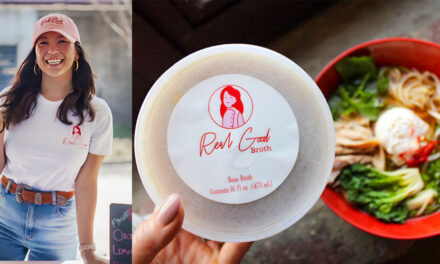The skin, the human body’s largest organ, serves as a protective barrier against the elements and plays a vital role in maintaining overall health. While we often associate skincare with external products and treatments, the connection between what we eat and the health of our skin should not be overlooked.
It’s no secret that a diet full of nutrient-rich foods contributes to overall health, and the condition of our skin is no exception. Our skin relies on essential vitamins, minerals, antioxidants, and other nutrients to stay healthy, radiant, and youthful. Here are a few ways in which nutrition impacts skin health:
HYDRATION: Adequate water intake is crucial for maintaining skin hydration. Dry, dehydrated skin can appear dull, flaky, and more prone to wrinkles. Drinking water and consuming hydrating foods like fruits and vegetables can help promote a supple complexion.
ANTIOXIDANT PROTECTION: A diet rich in antioxidants, such as vitamins A, C, and E, helps protect the skin from free radical damage caused by environmental factors like UV radiation and pollution. Antioxidants help combat inflammation, reduce signs of aging, and promote a healthy skin glow.
COLLAGEN FORMATION: Collagen, a structural protein, is essential for maintaining skin elasticity and preventing wrinkles. Vitamin C, zinc, and copper are necessary for collagen synthesis. Consuming citrus fruits, berries, nuts, and seeds can support collagen production.
INFLAMMATION REDUCTION: Certain foods can promote or reduce inflammation in the body, impacting skin health. A diet high in processed foods, sugar, and highly refined oils may contribute to inflammation and skin conditions like acne. Conversely, consuming a diet rich in fruits, vegetables, whole grains, and Omega-3 fatty acids can help reduce inflammation and improve skin clarity.
Another important nutrient to highlight is fiber. The gut-skin axis refers to the interplay between the gut microbiome and the health of our skin. Emerging research suggests a healthy gut plays a significant role in promoting clear and vibrant skin. A wellbalanced diet with fiber-rich foods like fruits, vegetables, and whole grains supports a diverse gut microbiome, positively influencing skin health.
Certain gut conditions, like leaky gut syndrome, can lead to systemic inflammation that may manifest as skin issues like eczema or psoriasis. Focusing on gut health by consuming probiotic-rich foods like yogurt, sauerkraut, and kefir, as well as prebiotic foods like garlic, onions, and bananas, can positively impact skin conditions. 901 Nutrition’s gut-health expert, Maddie Hastings, can help you improve your gut health.
The link between nutrition and skin health is undeniable. While genetics and external factors also play a role, what we eat significantly influences the appearance and well-being of our skin. A diet rich in essential nutrients, antioxidants, and hydration supports skin health, reduces inflammation, and helps maintain a youthful complexion. Fostering a healthy gut microbiome through a balanced diet can enhance skin radiance.
To help restore gut health and balance your microbiome, call Maddie at 901.800.9526, email [email protected], or visit 901nutrition.com.
Erin Dragutsky is the co-founder of 901 Nutrition, LLC and a licensed, registered dietitian in Memphis. Erin specializes in helping clients with eating disorders and disordered eating habits. She is passionate about helping clients ditch their diets for good, find food freedom, and develop a positive relationship with food. 901nutrition.com, 901.800.9526.
By Erin Dragutsky, MS, RD, LDN







